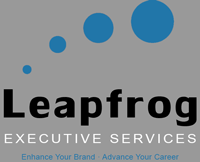Branding Lessons From The Architect of Tomorrow
Category : 2019
Before he was worth $22 billion, he earned $18 an hour cleaning the boiler room in a lumber mill. Before his name became synonymous with innovation and visionary ideas, he supplemented his university scholarship by using where he lived as a speakeasy. He demonstrated his commitment to his company by agreeing to take no salary until the business reaches a market cap of $100 billion ($40 billion to go).
Elon Musk is readily available to the media, very popular with his fans, and highly polarizing in what he says. In 2017, Rolling Stone named him the Architect of Tomorrow and he has been called the first influencer CEO. In Entrepreneur, marketing technology expert Alp Mimaroglu described Elon Musk as a “48-year-old entrepreneur extraordinaire [who] consistently manages to excite, rattle and assuage employees, investors and shareholders alike as he executes his vision.”
Notwithstanding his tweet that, “I hate the whole idea of brands and branding. So much BS . . . Brands suck,” this entrepreneur, space explorer, and out-spoken critic of whatever he doesn’t like offers a three-dimensional lesson in how to build a powerful brand. Leveraging Mimaroglu’s brief ideas in Entrepreneur[i], here are three branding lessons from a leader who embraces failure as quickly as he lauds success.
A captivating mission is about more than what you do
To understand the Elon Musk brand today, you need to explore its beginnings. After finishing college with a large college debt (sound familiar?), Musk and his brother borrowed $28,000 from their father to launch Zip2, a company that provided and licensed city guide software to newspapers. To keep overhead low, Musk lived in his office and showered in the YMCA. The venture was a success and Musk moved to millionaire status four years later when Zip2 was sold to Compaq for $307million. His more well-known foray into on-line bill paying with PayPal (sold to eBay for $1.5 billion) gave Musk the financial base for bigger dreams.
Musk believes and demonstrates an impactful brand grows from a captivating mission that is more about an outcome (what you accomplish) than an output (what you do). As a person, Musk is compelled by the belief that “If something is important enough you should try, even if the probable outcome is failure.” Tesla’s mission is “to accelerate the world’s transition to sustainable energy.” The edgy projects at SpaceX emerge from a desire to “enable humans to become a spacefaring civilization and a multi-planet species by building a self-sustaining city on Mars.”
Notice that Tesla says nothing about vehicles, SpaceX says nothing about rockets, and Musk says nothing about any of the businesses he has created. Regardless of your role, title, or level in a company, your personal mission should drive you to, as the founder of Patagonia says, “take the stairs two at a time.” The farther a leader travels on a career path, the more owning an engaging mission is critical. Without a meaningful mission, all the quarterly earnings, market captures, and stock options in the world can’t erase the feeling that “life must go on, I just can’t remember why.”
What you say matters-always
Strong brands are built on contribution, reputation, and communication. The Securities and Exchange Commission knows the power of words and strictly controls communication about earnings. A leader can easily underestimate the ripples of what is meant to be an inconsequential comment. When a CEO walks through a conference room commenting that the plant in the corner is a little pale, someone assumes he is unhappy and wants a new plant service.
Elon Musk keeps learning this branding lesson the hard way. After telling Wall Street analysts he tired of their “boring, bonehead questions,” Tesla’s stock plunged. Three months later, Musk made what KeyBanc called “maybe the most valuable apology of all time.” Musk repeatedly expressed regret for his inappropriate behavior on the previous call saying, “There’s really no excuse for bad behavior.” Tesla shares went up 8.5 percent in after-hours trading that day, adding close to $4.75 billion to the company’s value. After making other unkind and misdirected comments Musk simply called himself “an idiot.”
A strong brand is self-secure
Big brands make big targets. Any executive committed to something bigger than they are will face criticism, misunderstanding, and unvarnished dislike. After what he described as an “excruciating” year in 2018, Musk told the New York Times, “If you have anyone who can do a better job, please let me know. They can have the job.” Musk had no intention of leaving Tesla. He simple demonstrated his conviction that he still believed in his mission, he was certain there was a way forward, and he was confident there was no one else better qualified than him to get his company where it needed to be.
As one popular speaker of the past described it, “Wherever there’s light, there’s bugs.” Holding the light for a challenging mission makes a leader a very visible target for the misinformed, the misdirected, and the miserable. A clear indicator a leader is progressing toward a mission is someone telling the leader the strategy isn’t right, it will take too long, or the pain involved makes the mission flawed. A solid personal brand is built on self-confidence and the balance of knowing you are neither as good or as bad as the press or social media describe you.
Elon Musk’s SpaceX office was once decorated with a poster of a shooting star. Beneath the image read a caption that portrays the humor and balance of a leader with a strong brand. “When you wish upon a falling star, your dreams can come true. Unless it’s really a meteor hurtling to the Earth which will destroy all life. Then you’re pretty much hosed, no matter what you wish for. Unless it’s death by meteorite.”
[i] https://www.entrepreneur.com/article/341278